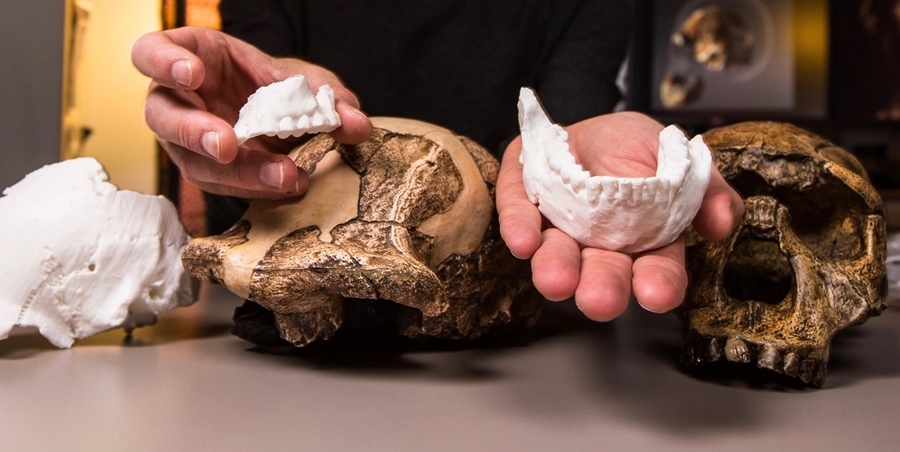
FAYETTEVILLE, Ark. – Ever wonder what anthropologists work on behind closed doors?
Now’s the chance to explore because the Department of Anthropology at the University of Arkansas’ J. William Fulbright College of Arts and Sciences is hosting its second annual Anthropology Open House from 4 to 7 p.m. Monday, Feb. 20, on the first floor of Old Main.
Get the inside scoop on everything the profession entails – from forensic methods for uncovering ancient Egypt, to understanding how living cultures vary, to the ways dental patterns and wear can unlock the secrets of humanity’s evolution and more.
“We’re very excited to share our passion for anthropology with the community,” said Justin Nolan, the department’s chair and associate professor who specializes in ethnobiology, medical anthropology, cultural conservation and region-specific folkways and traditions.
“The lab doors will all be open,” he said. “And everyone is welcome to tour the labs, see artifacts and fossils up close, learn how research in the discipline is conducted and talk to our resident experts in archeology, biological anthropology and cultural anthropology.”
Nolan said the event also recognizes and celebrates the American Anthropological Association’s World Anthropology Day.
Claire Terhune, an assistant professor whose research focuses on understanding the evolution and function of primate, modern human and fossil hominin skull shape, helped organize and create the event which was first held last spring.
“It was a great success, and we’ve been looking forward to hosting another one,” she said. “T
he entire community is invited to join in, participate in activities and explore the research conducted by our department’s faculty and students.”
Terhune said poster and table displays will showcase special projects and community engagement, and there will be games and snacks to round out the free experience.
“Visitors will even be able to take their picture with a reconstruction of the fossil species Lucy,” Terhune said.
For more information, visit the Department of Anthropology website.
About the Department of Anthropology: The Department of Anthropology examines similarities and differences among people, lifestyles and world views through time by the study of artifacts and material remains, the evolution of humankind and other primates and issues such as ethnicity, gender, class, social inequity and religion. Courses help students explore many approaches to the various subfields.
About the J. William Fulbright College of Arts and Sciences: The J. William Fulbright College of Arts and Sciences is the largest and most academically diverse unit on campus with 19 departments and 43 academic programs and research centers. The college provides the core curriculum for all University of Arkansas students and is named for J. William Fulbright, former university president and longtime U.S. senator.
About the University of Arkansas: The University of Arkansas provides an internationally competitive education for undergraduate and graduate students in more than 200 academic programs. Founded in 1871, the University of Arkansas comprises 10 colleges and schools and maintains a low student-to-faculty ratio that promotes personal attention and close mentoring.
Topics
Contacts
Justin Nolan, associate professor and chair of anthropology
J. William Fulbright College of Arts and Sciences
479-575-2433,
Andra Liwag, director of communications
J. William Fulbright College of Arts and Sciences
479-575-4393,